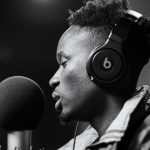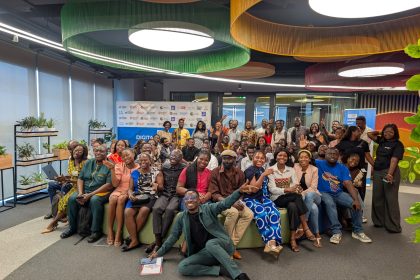Activism has been a constant presence in Africa. Youths swarming the streets to protest against authoritarian leaders and dictatorship has been a constant sight for today’s millennial, growing up. As time went by, that voice needed to be more collective. It needed unison. It needed further reach.
Then came along the 92 million millennial generation and they came armed with social media. By a long mile, they outnumbered the 72 million baby-boomer era. In essence, their voice became louder and it penetrated African leaders in places it hurt the most.
With the peak age of the millennials being around the mid-thirties where adult lives and careers were just taking off, this made the developing generation a powerful social, economic, and political force, which terrified the older generation. This led to a gross misrepresentation of millennials, due to the fear of losing political leads.
However, as more Millennials came of age, they refused to be kept voiceless. They took to the tools at their disposal. Tools that could reach over a billion people with a single tweet, post, article or picture. The older generation never saw this coming. They never thought a platform could make these people so powerful. It was a voice stronger than they could control. The best part about it? Africa wasn’t left behind.
You see, no longer are Africans just consumers, but producers of content and this has become essential in what has evolved into the digital media sphere. African millennials are starting to care about social problems and harness the power of social networks to build awareness, gain support and fundraise with warp speed. African millennials have used the power of social networks to create the change they desire.
Ghana’s 2016 Elections

Millennials accounted for a good portion of the voting group the participating parties in last year’s elections campaigned for. A good 54% of Ghana’s 28million population is under 24 and that number intends to triple in 10 years. In essence, Millennials played the most important role in last year’s elections. How did they do this?
They used social networks as a tool to vent their displeasure at the incumbent government at the time. They were daring, courageous and they took it to the incumbent. You thought it would end there? No, they walked their talk. They took the conversation offline and made sure their voices were heard. Such courage! Bringing it home, it all started online.
Nigeria’s 2015 Elections

Nigeria went to the ballots in 2015, totally outraged at their incumbent. Same case as Ghana’s. There were looms of change on social networks. Nigerian twitter was heated with political vent and they insisted on getting their voices heard. An election that created enemies in real life – enmity that started online. This was a savage period.
Social networks put everyone on the same pedestal. It gave a vast majority of Nigerians active on social networks, an outlet to unite and create their future, decide who gets to lead them and eventually have bragging rights. This was so glooming, the APC hired one of Africa’s biggest digital strategist’s and invested millions of dollars to get them working. Social media was their tool, and they used it oh too well.
Xenophobia

Sometime in 2015, Xenophobia crawled its way back into the reality of today. Foreign nationals in the KwaZulu-Natal province were attacked. Their businesses were attacked and looted. As usual, this sparked an outrage on social media, with many users condemning the xenophobic attacks. But did Africans as a communal voice leave that to chance? Hell no. Social media united us.
Tweeting under different hashtags such as #NoToXenophobia, #WeAreAfrica, #Loveafrica, all of Africa expressed their views. There was one language – No to Xenophobia!
#NotTooYoungToRun

Young Nigerians on social media rallied together, to get their senate to reduce the age of eligibility for office. A few influential folks on Nigerian Twitter rallied together and got the #NotTooYoungToRun hashtag trending wildly.
Not only did this influence policy, and get this bill on the floor of the Senate, it got the bill passed. The eligibility age for office holders was reduced to 35 and this emanated from social media. There couldn’t be a better description of Social Unity.
Dumsor Must Go

Many households in Accra, for the most of 2015, experienced 24-hour power outages and only 12 hours of power supply. The power crisis intensified and became worse as the months went by. It got so bad that a load-shedding timetable was created to share electricity. This is coming from a country that once had 24-hour power supply.
But then where there’s social media, there’s a way out. #DumsorMustGo became a resounding voice, so much so that the government couldn’t ignore. It became a united voice.
These are just a few of the biggest trends and activity in online communities which have stemmed from African Millennial influencers – and they should really be proud of this feat.
This also tells a story for brands on Social media. The African/Black millennial community is the strongest you can ever have on social networks. If they don’t love your product/brand, no one else will. As competition heats up to reach the young and influential community of African millennials, brands will need to focus on culturally diverse initiatives to keep up.
As competition heats up to reach the young and influential community of African millennials, brands will need to focus on culturally diverse initiatives to keep up.
But one thing is certain: Social media is a powerful tool the Millennials yield, all in one voice, echoing louder than ever.











